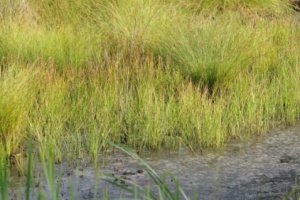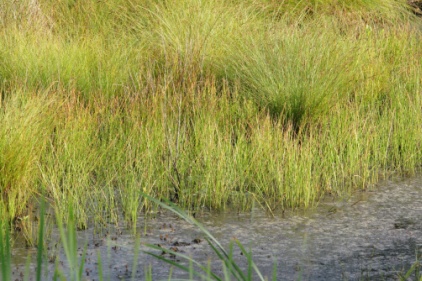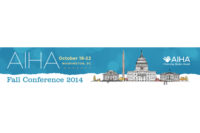 Another sign of the times, as industrial hygienists pack conference rooms at the PCIH being held this week in Baltimore to listen to these potentially career-changing sessions:
Another sign of the times, as industrial hygienists pack conference rooms at the PCIH being held this week in Baltimore to listen to these potentially career-changing sessions:
Sustainability and Social Responsibility
This introductory course, which ran Sunday for nine hours at fees ranging from $430 to $510, sold out.
Here is the description of the course in the PCIH program:
Value added: Discuss case studies on work practice improvement for sustainability and historical strategies, along with Triple Top Line and Bottom Line concepts.
Outcomes: Upon completion, the participant will be able to
• Explain the history and origins of sustainable development
• Grasp key areas where organizations can improve management of human, financial and natural capital with tools and techniques to overcome common challenges to sustainability
• Plan career transitions to take advantage of the opportunities that sustainability presents
• Identify opportunities that sustainability and social responsibility create for practicing IHs and the IH professionals of the future
Outline:
• Overview of the history of sustainability — substantive overview of current issues including sources of the public and human health implications, carbon and carbon footprint management and reduction, new approaches to natural capital, waste minimization, environmental risk management and related topics
• Case studies — introduction of two detailed case studies with embedded sustainability challenges at various management levels; interactive breakout groups will discuss and begin to examine the challenges, opportunities and unexpected or unanticipated outcomes/linkages of each case study
• Conclusion — a survey of likely horizon issues that will challenge the practitioner and the organization to become even more committed to and adept at operationalizing sustainability
Description: The phrases “sustainability,” “social responsibility,” “greening the enterprise” and related notions have given rise to a growing interest in the EHS community over the past 10 years, but what does sustainability really mean to the practicing EHS professional? How can it improve your work processes and add value to your business?
This Professional Development Course will educate EHS professionals on the fundamental building blocks of sustainability, or the Triple Bottom Line. It will also discuss the limitations of this concept and the superior concept of the Triple Top Line.
Participants will learn how the balance of social, economic and environmental thinking, decision making and performance focus can all drive excellence and leadership in their organizations.
The PDC will begin by setting a common framework for sustainability through its definition and roots, the predominant developments in the guidelines and the way sustainability has driven international guidelines and policy. Practical sustainability implementation options will be explored via real-life case studies. Participants will explore strategies and compare their findings with the true historical outcomes.
Instructors: Edward L. Quevedo, Paladin Law Group, LLP, Santa Barbara, CA; Rosanne Quevedo, REA, URS Corporation, San Jose, CA.
What Every IH Should Know About Stewardship and Sustainability
Moderator: Tom Grumbles, CIH, Entrix, Houston, TX.
Program description: “There is a growing need for companies and organizations of all kinds to have Product Stewardship and/or Sustainability programs. Both areas suffer from the lack of common definitions at any detailed level. However, no matter how an organization chooses to define its efforts under those banners it is clear that industrial hygienists are and should be involved.
“The general principles and specific implementation activities needed to achieve success in these areas are areas where an industrial hygienist can lead or significantly contribute to Stewardship or Sustainability. There are many opportunities on the horizon for IHs in Stewardship or Sustainability. You won't want to miss this great chance to learn from real practitioners.
“In this session we will discuss what these areas encompass, what specific activities create opportunities for an industrial hygienist and what AIHA is and/or should be doing to support its members in these areas.”
PDC 11 SOLD OUT
What Every IH Should Know About Water and Sustainability
This four-hour introductory/intermediate course, held on Wednesday of this week during the PCIH, at fees ranging from $180 to $275, sold out.
According to the program description:
Value added: Receive water conservation tools and resources you can apply in your own practice.
Outcomes: Upon completion, the participant will
• Learn the importance of water as a natural resource
• Understand why water conservation is important
• Understand the water cycle and where water is used, how it is recycled and the significance of contamination of water
• Become familiar with current trends and concepts in water use mapping, water footprinting and other schemes in water management
• Learn how EHS professionals can be involved in water conservation
• Learn about water conservation methods and approaches
• Understand the various schemes for publically reporting water use
Outline:
• Why water conservation is important
• Areas under water stress and the risks presented
• Agricultural and industrial impacts on water
• Current concepts in water use and conservations including water footprinting
• The role that EHS professionals can play
• Water conservation methods and approaches
•Water use reporting
Description: Water conservation is probably the second most important aspect of environmental performance in sustainability and corporate social responsibility. Some contend that it is more important than global warming, which is considered by most as the primary issue, as lack of potable water presents a far more immediate problem in much of the world than climate change. Lack of water can present a very significant risk for both high-volume users of water and those who have not considered water availability to be critical.
Instructor: Zack Mansdorf, PhD, CIH, CSP, QEP, Sustainability Consultants, Boca Raton, FL.



